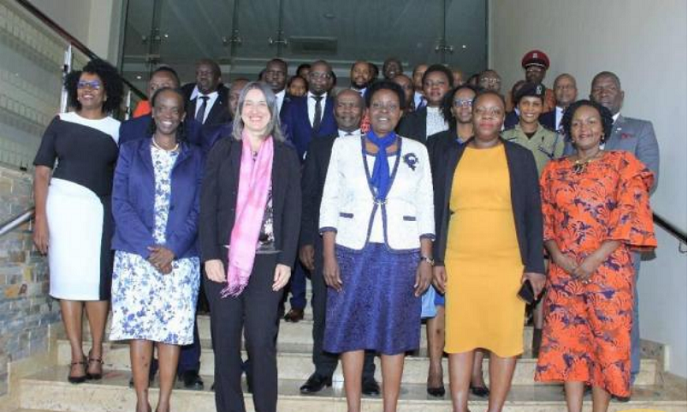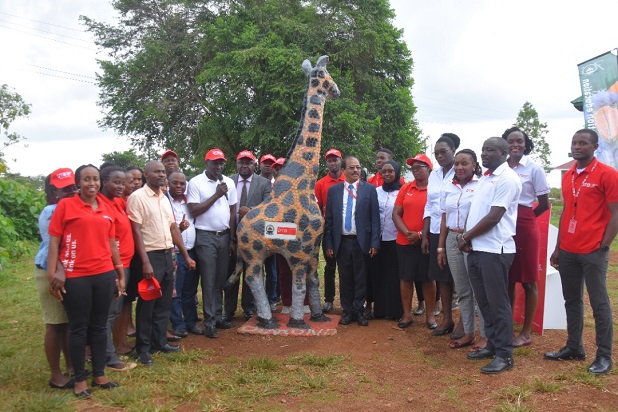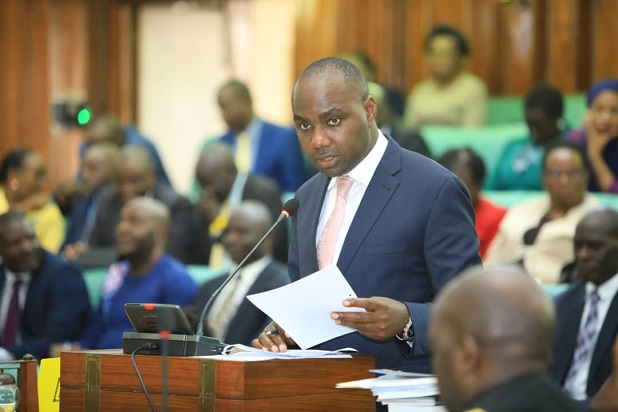The participants in SGBV Session Work Shop in Kampala.
Assistant Superintendent of Police, Lilian Doris Mutesi, the head of DNA and Serology in the Police has appealed to the government to allocate more resources to Deoxyribonucleic Acid (DNA) analysis.
She made the request at a two-day workshop involving key players and partners in the justice system, including prosecutors, prisons, police, judicial officers, and the UNFPA who met to assess their performance in handling Sex and Gender-Based Violence (SGBV) cases and explore ways to enhance their efforts in the upcoming phase.
Mutesi emphasized that securing witnesses for court testimonies often proves challenging, and DNA evidence stands as a crucial means to incriminate perpetrators.
However, the high costs associated with DNA analysis present a significant barrier.
A single DNA sample test costs Shillings 400,000 and to ensure conclusive and reliable results, multiple samples are required, leading to an approximate cost of Shillings 2 million.
In light of these financial constraints, Mutesi urged the government to invest more in DNA analysis to facilitate the acquisition of vital evidence for SGBV cases. She also highlighted the need for public sensitization on managing evidence effectively.
Mutesi shared instances where rape or defilement cases were reported days after the incident, compromising the quality of evidence.
Furthermore, Mutesi recommended that investigators discontinue the collection of vaginal swabs on cotton wool due to challenges in analyzing them at the Forensics Laboratory.
She also stressed the importance of timely response by the scene of crime officers, as delays in collecting DNA evidence can result in degraded quality. To improve the handling of SGBV cases, Mutesi emphasized the importance of training for both police and judicial officers.
Director of Forensics in the Uganda Police Force, Andrew Kizumula Mubiru, supported Mutesi’s plea, highlighting the need for proper collection and preservation of evidence. He emphasized that the Forensics Laboratory relies on the samples collected, and if the evidence obtained is of poor quality, it affects the results.
Mubiru called for expedited handling of SGBV cases and proposed digitizing crime scenes for more efficient investigations.
Justice Lawrence Tweyanze echoed the sentiment, stating that increased investment in the criminal justice system is essential. He shared an example where evidence obtained from the accused person’s nails was crucial in securing a conviction.
Tweyanze urged police officers to simplify their reports for easier interpretation by judicial officers.
The workshop, officiated by Lady Justice Damalie Lwanga, the Executive Director of the Judicial Training Institute, witnessed significant contributions from the Justice and Law sector and the UNFPA. Their joint efforts resulted in the successful disposal of over 400 SGBV cases during the previous phase of special court sessions.
Notably, the fight against SGBV received a grant of 3 million Euros (approximately 12 billion Shillings) from the Australian Government between September 2022 and 2024. The funding aims to ensure justice for victims of SGBV, with a particular focus on Karamoja and Northern Uganda, benefiting approximately half a million people.
-URN





